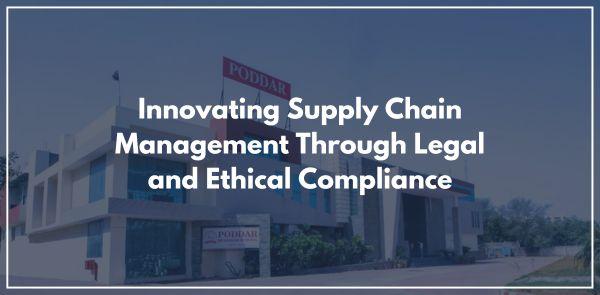
In an increasingly interconnected world, supply chain management has evolved from a functional necessity to a strategic differentiator for businesses. As companies face heightened expectations to deliver goods faster, cheaper, and more sustainably, legal and ethical compliance has emerged as a critical cornerstone of innovation in supply chain operations. This article explores how businesses are leveraging compliance to drive innovation, foster sustainability, and enhance their global competitiveness.
The Role of Legal and Ethical Compliance in Supply Chains
Supply chains operate in a complex regulatory environment shaped by trade policies, environmental standards, labor laws, and anti-corruption measures. Legal compliance ensures businesses adhere to these requirements, avoiding fines, reputational damage, and disruptions. Ethical compliance, on the other hand, encompasses voluntary commitments to human rights, fair labor practices, and sustainability. Together, these principles provide a foundation for businesses to innovate and differentiate themselves.
1. Strengthening Trust and Transparency
Legal and ethical compliance enables businesses to establish transparent supply chains. Digital technologies like blockchain are being adopted to provide traceability, ensuring compliance with laws such as the Modern Slavery Act and environmental standards. Companies like Nestlé have implemented blockchain to trace coffee beans from farmers to consumers, ensuring ethical sourcing and boosting consumer trust.
2. Driving Sustainability Through Innovation
Compliance with environmental regulations has encouraged companies to develop sustainable practices. For instance, the European Union's carbon-neutral goals have driven businesses to innovate in energy-efficient transportation and packaging. Companies like Unilever have adopted circular economy models, reusing materials and reducing waste in compliance with these laws, creating both cost savings and environmental benefits.
3. Streamlining Processes with Digital Transformation
Compliance often necessitates process improvements, leading to operational innovation. Regulatory requirements around data privacy, such as the General Data Protection Regulation (GDPR), have pushed companies to innovate in data security and logistics systems. Digital platforms now integrate compliance checks, automate documentation, and monitor supplier practices, reducing administrative burdens while improving efficiency.
Challenges and Opportunities
Challenges
- Complexity Across Jurisdictions: Navigating diverse legal frameworks in global supply chains can be challenging.
- Cost of Compliance: Meeting stringent regulations often involves significant financial investment.
Opportunities
- Public-Private Partnerships: Collaborating with governments can foster compliance-friendly policies that encourage innovation.
- Competitive Advantage: Ethical and legal compliance enhances brand value and attracts socially conscious consumers.
Conclusion
Innovating supply chain management through legal and ethical compliance is no longer an option—it is a business imperative. Companies that integrate compliance into their strategies not only mitigate risks but also unlock new opportunities for efficiency, sustainability, and growth. By embracing technologies like blockchain and prioritizing transparency, businesses can ensure compliance while fostering innovation, strengthening their position in a competitive global market.
Under the Poddar Business School's exclusive ‘Students Development Program’ at the esteemed IIM Indore, the PGDM program students underwent rigorous training on Business Simulation, Case Studies and Innovative Research. Poddar Business School is a leading management institution in Jaipur. With many years of excellence, the management institute offers the best PGDM and MBA programs.
